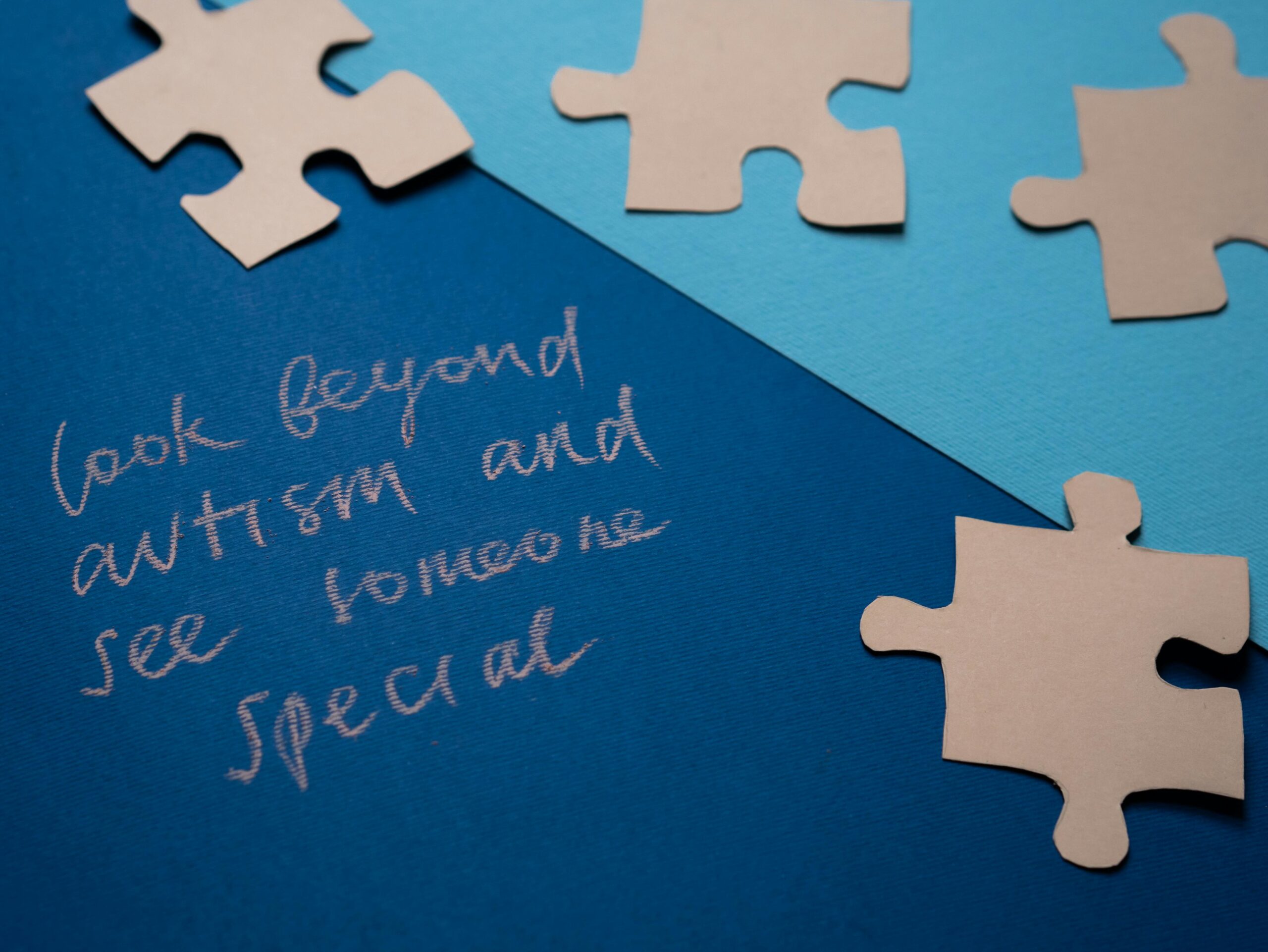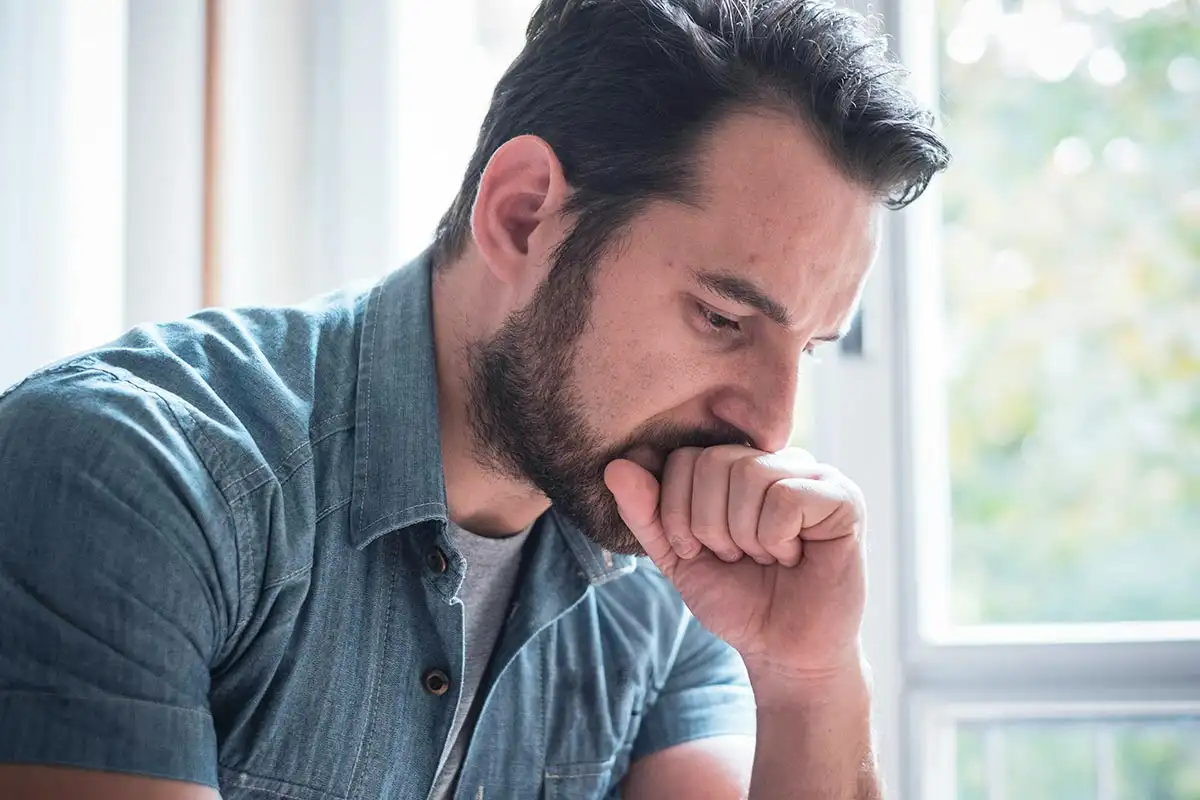
Finding Family Support Groups in Orange County: Beyond Al-Anon
Medically Reviewed by:

Dr. Marco M. Zahedi
Medical Director, Compassion Recovery Center

Dr. Michael Majeski
Licensed Psychologist (LP), Compassion Recovery Center
Table of Contents
The Unwavering Pillar: Understanding Family Support’s Role in Addiction Recovery
When a loved one is grappling with addiction, the entire family system feels the impact. The journey to recovery is rarely walked alone; it’s a path that becomes more navigable and sustainable with a strong support system. Family support groups, particularly in areas like Orange County, offer a crucial lifeline, providing education, shared experiences, and coping strategies for those whose lives are intertwined with an individual’s substance use. These groups create a space where feelings of isolation, confusion, and helplessness can be acknowledged and addressed in a community of others who truly understand.
For decades, Al-Anon has been a prominent name, offering invaluable support to families affected by alcoholism. Its principles and meetings have helped countless individuals find solace and strength. However, the landscape of addiction and recovery is diverse, and so are the needs of families. What works for one family may not be the perfect fit for another. This is why it’s essential to look “Beyond Al-Anon” and explore the broader spectrum of family support groups available, especially for those in Orange County seeking help. The purpose of this guide is to illuminate these alternatives, helping you find the right kind of support that resonates with your family’s unique situation, values, and needs. At Compassion Recovery Center, we recognize the profound importance of family involvement and are dedicated to supporting not only the individual in recovery but also their loved ones, often through accessible telehealth addiction treatment options.
Understanding the dynamics of addiction, its impact on familial relationships, and the pathways to healing is a complex undertaking. Family members often experience a rollercoaster of emotions, from anger and frustration to guilt and deep concern. Support groups provide a framework for processing these emotions constructively. They teach families how to establish healthy boundaries, improve communication, and, importantly, how to care for their own well-being while supporting their loved one. This journey of family healing is integral to the overall recovery process. If you’re beginning to explore how your family can find support, consider starting with a Free Assessment to understand the resources available to you.

What Are Family Support Groups and Why Are They Essential?
Family support groups are gatherings of people who share a common experience: having a loved one struggling with addiction. These groups, whether focused on alcohol, drugs, or co-occurring mental health conditions, provide a safe, confidential, and non-judgmental environment. Their primary purpose is to offer mutual support, education, and coping mechanisms to family members and friends. Participants learn from each other’s experiences, gain insights into the nature of addiction, and discover healthier ways to interact with their loved one and manage the stresses associated with their situation. The collective wisdom and shared understanding within these groups can be incredibly empowering.
The benefits of joining a family support group are manifold and deeply impactful:
- Reduced Isolation and Stigma: Addiction often thrives in secrecy and can leave families feeling isolated. Support groups break down these walls, connecting individuals with others who understand their struggles without judgment. Knowing you are not alone can be a profound relief.
- Education and Understanding: Many groups provide valuable information about addiction as a disease, its progression, treatment options, and the recovery process. This knowledge can help demystify the condition and equip families with a better understanding of what their loved one is experiencing.
- Development of Coping Skills: Living with active addiction in the family can be incredibly stressful. Support groups teach practical coping strategies for managing anxiety, setting healthy boundaries, and avoiding enabling behaviors. This is crucial for both the family’s well-being and to support the loved one’s recovery. You can learn more about setting boundaries to protect your sobriety and that of your loved ones.
- Emotional Support and Validation: Sharing feelings and experiences with empathetic peers who have “been there” provides immense emotional relief and validation. It’s a space where you can be honest about your pain, fear, and hope.
- Improved Family Dynamics: Addiction can strain family relationships to the breaking point. Support groups often help families learn healthier communication patterns and ways to rebuild trust, which are essential components of long-term recovery.
- Focus on Self-Care: It’s common for family members to neglect their own needs while focusing on their loved one. Support groups emphasize the importance of self-care, reminding participants that their well-being is also paramount.
Family support groups beautifully complement formal addiction treatment services, such as those offered by Compassion Recovery Center through Virtual IOP Program and comprehensive telehealth addiction treatment. While professional treatment focuses on the individual’s recovery, family support groups address the needs of the surrounding family system. When families are educated, supported, and equipped with coping skills, they create a more stable and understanding home environment, which significantly enhances the chances of sustained recovery for their loved one. This holistic approach, addressing both individual and family healing, is a cornerstone of effective, long-term recovery. If you’re exploring professional treatment alongside family support, it’s helpful to understand different addiction treatment programs to see what might be the best fit. Learning how to effectively communicate with a loved one about their substance use is another skill often nurtured in these settings.
Al-Anon: A Widely Recognized Path for Family Support
Al-Anon Family Groups, often simply referred to as Al-Anon, is a fellowship of relatives and friends of alcoholics who share their experience, strength, and hope in order to solve their common problems. It was founded in 1951 by Lois Wilson, wife of Alcoholics Anonymous (AA) co-founder Bill Wilson, and Anne B., another wife of an early AA member. They recognized that families were profoundly affected by alcoholism and needed their own program for recovery and support, distinct from but complementary to AA.
The core of Al-Anon is based on the Twelve Steps and Twelve Traditions, adapted from Alcoholics Anonymous. The program emphasizes that alcoholism is a family disease and that changed attitudes can aid recovery. Meetings are typically structured around readings from Al-Anon literature, sharing of personal experiences related to living with or having lived with an alcoholic, and discussions on how the Al-Anon principles can be applied to daily life. The focus is primarily on the well-being of the family members themselves, helping them to detach with love from the alcoholic’s behavior while not detaching from the person, and to find serenity regardless of whether the alcoholic is still drinking or not.
Key principles and the structure of Al-Anon meetings include:
- Anonymity and Confidentiality: What is said in meetings stays in meetings, creating a safe space for open sharing.
- Non-Professional Leadership: Meetings are typically led by members, not professional therapists, fostering a peer-support environment.
- Focus on Self: Members are encouraged to focus on their own recovery and well-being, rather than trying to control or change the alcoholic.
- Spiritual, Not Religious: While the Twelve Steps refer to a “Higher Power” or “God as we understood Him,” Al-Anon is not allied with any specific sect, denomination, or religion. It is open to people of all faiths or no faith.
- No Dues or Fees: Al-Anon is self-supporting through voluntary contributions from its members.
- Alateen: A part of Al-Anon, Alateen is specifically for younger members, usually teenagers, whose lives have been affected by someone else’s drinking.
While Al-Anon has provided immense help to millions, it’s not a universal solution, and some families in Orange County and elsewhere may seek alternatives for various reasons:
- Spiritual Aspect: Although Al-Anon states it is spiritual rather than religious, the emphasis on a Higher Power in the Twelve Steps can be a barrier for individuals who are agnostic, atheist, or uncomfortable with spiritual concepts.
- Focus Solely on Alcohol: While the principles can be broadly applied, Al-Anon’s primary focus is on alcoholism. Families dealing with addiction to other substances (drugs, prescription medications) or behavioral addictions might feel a more specialized group like Nar-Anon or SMART Recovery Family & Friends would be more directly relevant.
- Meeting Format and Style: The traditional 12-step meeting format, with readings and specific sharing protocols, may not appeal to everyone. Some may prefer a more interactive, discussion-based, or skills-focused approach.
- Perceived Passivity: Some critics feel that the “detachment with love” concept can sometimes be misinterpreted as passivity or not taking enough action. While this is often a misunderstanding of the principle, it can lead some to seek groups that emphasize more proactive coping strategies.
- Accessibility and Scheduling: While Al-Anon meetings are widespread, finding a conveniently located or timed meeting in Orange County, especially with busy schedules, can sometimes be challenging. This is where the flexibility of virtual rehab California options can be particularly beneficial.
- Desire for More Clinical or Evidence-Based Approaches: Some individuals may prefer support groups that are explicitly based on scientific research and psychological principles, such as Cognitive Behavioral Therapy (CBT).
It’s important to reiterate that Al-Anon is an incredibly valuable resource. However, acknowledging these potential limitations helps to understand why exploring options “Beyond Al-Anon” is crucial for ensuring every family finds the support system that best fits their needs. Compassion Recovery Center supports individuals and families in finding the right resources, which might include considering how effective telehealth is for substance abuse treatment, allowing for greater access to diverse support systems.

Venturing Beyond: Exploring Alternative Family Support in Orange County
Orange County, with its diverse population and varying needs, offers a landscape where families are increasingly seeking a range of support options that go beyond traditional models. While Al-Anon serves many, the quest for alternatives reflects a desire for support that aligns more closely with specific beliefs, the nature of the loved one’s addiction, or preferred methods of coping and interaction. Fortunately, the spectrum of family support groups has broadened, encompassing various philosophies and approaches to help families navigate the complexities of addiction.
When searching for the right support group for your family in Orange County, several criteria can guide your decision-making process:
- Philosophy and Approach: Does the group follow a 12-step model, a science-based approach (like SMART Recovery), or another framework? Consider what resonates most with your family’s values and beliefs.
- Focus of the Group: Is the group specific to alcohol (like Al-Anon), drugs (like Nar-Anon), or does it cover a broader range of addictions and compulsive behaviors (like Families Anonymous or SMART Recovery Family & Friends)? If your loved one struggles with a Dual Diagnosis Treatment, finding a group that acknowledges co-occurring mental health issues can be beneficial.
- Meeting Format: Do you prefer structured meetings with readings and sequential sharing, or more open, discussion-based formats? Some groups might incorporate educational components or skills-training.
- Group Dynamics: Consider the size of the group, the typical demographics, and whether it is facilitated by a peer or a professional. Some may prefer smaller, more intimate settings.
- Secular vs. Spiritual Emphasis: If the spiritual components of 12-step programs are a concern, secular alternatives like SMART Recovery offer a non-theistic approach.
- Accessibility: This includes not only physical location within Orange County but also the availability of virtual meetings. The rise of telehealth has made support more accessible than ever.
The importance of considering virtual options cannot be overstated, especially in a sprawling area like Orange County or for families with demanding schedules. Virtual support groups, online therapy sessions like online CBT therapy, and even virtual couples counseling rehab, offer unparalleled flexibility and convenience. They eliminate travel time, provide access to a wider range of specialized groups that may not be available locally, and can offer a degree of anonymity that some individuals find comforting. Compassion Recovery Center champions these remote options, understanding that accessible support is key. Our Virtual IOP Program is designed to fit into busy lives, and we encourage families to explore online support networks that complement this approach. For families navigating relationship challenges exacerbated by addiction, virtual couples counseling can be an invaluable resource, offering tools and strategies from the comfort of home. The ease of access can be a significant factor in consistent participation, which is vital for ongoing support. Families interested in how these services are integrated can Contact Us to learn more about comprehensive care plans.
Diverse Avenues of Support: Types of Family Groups Beyond Al-Anon
The landscape of family support for addiction recovery has evolved, offering various models tailored to different needs and preferences. For families in Orange County looking for alternatives or additions to Al-Anon, several reputable organizations provide distinct approaches. Understanding these options can help you make an informed choice that best supports your family’s healing journey.
SMART Recovery Family & Friends:
SMART Recovery (Self-Management and Recovery Training) offers a distinct, science-based alternative to 12-step programs. Their Family & Friends program is designed for concerned significant others (CSOs) of individuals with addictive behaviors.
Overview: SMART Recovery utilizes tools based on Cognitive Behavioral Therapy (CBT), Rational Emotive Behavior Therapy (REBT), and motivational interviewing. The program focuses on empowering CSOs with skills to manage their own emotional well-being, improve communication with their loved one, and encourage positive change in their loved one without resorting to enabling or confrontation.
Benefits:
- Secular and Science-Based: Appealing to those who prefer a non-spiritual, evidence-informed approach.
- Empowerment and Skill-Building: Provides concrete tools and techniques for self-care, boundary setting, and effective communication (e.g., using the “7 Tools for CSOs”).
- Focus on Present and Future: While acknowledging past experiences, the emphasis is on current coping strategies and future well-being.
- Interactive Meetings: Often more discussion-oriented and problem-solving focused than traditional 12-step meetings. Online meetings are widely available.
This approach can be particularly synergistic with evidence-based therapies offered in programs like Compassion Recovery Center’s Virtual IOP Program.
Families Anonymous (FA):
Families Anonymous is a 12-step fellowship for relatives and friends concerned about the use of drugs, alcohol, or related behavioral problems by a loved one.
Structure and Focus: FA is similar in structure to Al-Anon, utilizing the Twelve Steps and Twelve Traditions. However, its scope is broader, explicitly welcoming families affected by any mind-altering substance or related behavioral issues (e.g., gambling, overeating, if related to the primary concern of substance use or its emotional fallout). The focus remains on the family members’ recovery and well-being, helping them to find serenity and manage their own lives more effectively.
Benefits:
- Broad Scope: Addresses a wider range of addictive behaviors beyond just alcohol.
- Familiar 12-Step Structure: Comforting for those who appreciate the 12-step philosophy but need a group not solely focused on alcohol.
- Shared Experience: Provides a community for those dealing with the specific challenges posed by drug addiction or other compulsive behaviors in a loved one.
Nar-Anon Family Groups:
Nar-Anon is specifically designed for family members and friends who are affected by someone else’s drug addiction.
Support for Families of Drug Addicts: Like Al-Anon, Nar-Anon is a 12-step program, but its literature and discussions are tailored to the unique issues families face when a loved one is addicted to narcotics or other drugs. This can include dealing with legal problems, overdose fears, different patterns of manipulation, and the intense stigma often associated with drug addiction. If your loved one is in a Drug Rehab Programs, Nar-Anon can offer very specific and relevant support.
Benefits:
- Specific Focus: Provides highly relevant support for families impacted by drug addiction, acknowledging the distinct challenges this presents.
- Understanding Community: Connects individuals with others who share very similar experiences related to a loved one’s drug use.
- Application of 12-Step Principles: Offers the structured support of the 12 Steps tailored to the context of drug addiction.
Local Community-Based Support Groups and Their Offerings:
Beyond these national and international organizations, Orange County may host various local community-based support groups. These can be affiliated with:
- Treatment Centers: Some rehab facilities, like Compassion Recovery Center, may offer family programs or recommend specific local groups. It’s always worth asking about family support when exploring Admissions Information.
- Hospitals or Healthcare Systems: May run short-term educational programs or ongoing support groups for families.
- Non-Profit Organizations: Local mental health or addiction-focused non-profits sometimes facilitate support groups.
- Faith-Based Organizations: Churches, synagogues, mosques, or other religious institutions may host support groups, some of which might be 12-step based (like Celebrate Recovery, which has a family component) or offer their own unique programs.
Finding these local groups often requires some research through online searches (e.g., “family addiction support Orange County”), referrals from healthcare providers, or community directories. They can offer a more intimate setting or cater to very specific community needs. Exploring these diverse options ensures that every family can find a supportive environment that helps them heal and grow. Remember, the goal is to find a space where you feel understood, respected, and equipped to handle the challenges ahead. You might also find support through learning about specific issues like OCD and addiction if that’s relevant to your family’s situation.
Navigating the Path: Finding the Right Support Group in Orange County
Choosing a family support group is a personal decision, and what works well for one family might not be the ideal fit for another. Taking the time to identify and evaluate potential groups in Orange County can significantly impact the quality of support you receive. The goal is to find a community where you feel comfortable, understood, and empowered on your own journey of healing and supporting your loved one.
Here are practical steps to guide you in identifying and evaluating family support groups:
- Self-Reflection and Needs Assessment:
- What are your primary concerns? (e.g., specific substance, co-occurring mental health issues, communication breakdown, personal stress).
- What kind of approach are you looking for? (e.g., 12-step, secular/science-based, faith-based, psychoeducational).
- What are your logistical needs? (e.g., location in Orange County, meeting times, preference for in-person or virtual meetings). Families with busy schedules or those living in more remote parts of the county might heavily lean towards options compatible with virtual rehab California.
- What are your comfort levels regarding group size and sharing?
- Utilize Online Resources and Directories:
- National Organization Websites: The official websites for Al-Anon, Nar-Anon, SMART Recovery Family & Friends, and Families Anonymous have meeting finders that allow you to search by location, including Orange County and online options.
- SAMHSA (Substance Abuse and Mental Health Services Administration): Their National Helpline (1-800-662-HELP) and website can provide referrals to local support groups and treatment services.
- Orange County Health Care Agency: The county’s behavioral health services department may have listings or resources for local support groups.
- Psychology Today: Their website has a therapist finder and a support group finder that can be filtered by location and specialty.
- Simple Web Searches: Use specific search terms like “family support groups Orange County,” “Nar-Anon meetings Orange County,” or “SMART Recovery Family & Friends online meetings.”
- Reach Out and Gather Information:
- Once you’ve identified potential groups, look for contact information (phone numbers, email addresses). Don’t hesitate to reach out.
- Ask about the group’s philosophy, typical meeting format, whether they are open to new members, and if they have specific guidelines.
- Attend a Few Meetings (Trial Basis):
- Most support groups welcome newcomers and understand that you might be exploring your options. Attend a few different meetings of the same group or try different types of groups.
- Pay attention to the atmosphere: Is it welcoming? Do you feel respected? Does the sharing feel constructive?
- Assess the fit: Do the topics discussed resonate with your experiences? Do you find the approach helpful?
- Many groups now offer online or hybrid meetings, making it easier to “visit” without a significant time commitment. This flexibility aligns well with the accessibility of remote drug rehab Orange County.
- Trust Your Intuition: Ultimately, the “right” group is one where you feel a sense of connection and hope. If a particular group doesn’t feel like a good fit after a few tries, it’s okay to look for another one.
It’s crucial to align your choice of support group with the professional treatment your loved one might be receiving. For instance, if your loved one is engaged in MAT treatment online (Medication-Assisted Treatment), finding a family support group that understands and supports this evidence-based approach can be very beneficial. Similarly, if they are in a comprehensive Orange County IOP like the one offered by Compassion Recovery Center, a support group can reinforce the family’s role in the recovery process. Our team can also provide guidance on finding appropriate support systems; feel free to reach out today for a confidential consultation. The journey to find the right support is an important step in itself, demonstrating your commitment to healing. Remember, support is available, and finding the right community can make all the difference for you and your family. If financial concerns are a barrier, learning about California’s parity laws for insurance coverage can also be helpful.
A Unified Front: Integrating Support Groups with Professional Treatment
The journey of addiction recovery is most effective when it adopts a multifaceted approach, one that addresses the needs of the individual struggling with substance use as well as their family members. Family support groups are not a replacement for professional addiction treatment, but rather a powerful complement that can significantly enhance its effectiveness. When families are actively involved in their own healing and education through support groups, they create a more informed, stable, and encouraging environment for their loved one’s recovery journey.
Here’s how family support groups can enhance professional treatment programs like those offered by Compassion Recovery Center:
- Reinforcement of Healthy Behaviors and Coping Skills: Professional treatment, such as an Intensive Outpatient Program (IOP) or Partial Hospitalization Program (PHP), equips individuals with new coping mechanisms and strategies for sobriety. Family support groups help relatives understand these strategies, learn how to support their implementation, and develop their own healthy coping skills to manage stress and emotional reactions. This alignment creates consistency between the therapeutic environment and the home environment.
- Improved Communication within the Family: Addiction often damages communication pathways. Therapy helps the individual learn to communicate more effectively, and family support groups can teach similar skills to family members, fostering healthier dialogues, active listening, and constructive expression of feelings. Some families may even benefit from virtual couples counseling rehab to specifically address relational dynamics.
- Education About Addiction as a Disease: Understanding addiction as a chronic brain disorder, rather than a moral failing, can reduce blame and stigma within the family. Support groups provide this education, helping families approach their loved one with more empathy and understanding, which is crucial for healing. This can be especially important when dealing with complex issues like bipolar disorder and addiction.
- Setting and Maintaining Healthy Boundaries: A key aspect of family recovery is learning to set healthy boundaries – distinguishing between supporting and enabling. Support groups offer guidance and shared experiences on how to establish and maintain these boundaries, which protects the family’s well-being and encourages the loved one to take responsibility for their recovery. You can read more about setting boundaries with a loved one in recovery.
- Reduced Family Stress and Codependency: The stress of dealing with a loved one’s addiction can be overwhelming. Support groups provide an outlet for this stress and help family members address codependent patterns, allowing them to focus on their own health and happiness, which ironically creates a healthier system for everyone.
- Long-Term Support Network: Professional treatment is often time-limited, but recovery is a lifelong process. Family support groups offer an ongoing network of support long after formal treatment ends, helping families navigate the ups and downs of sustained recovery.
Compassion Recovery Center is committed to providing comprehensive care that recognizes the vital role of the family. While our primary focus is on the individual’s journey through services like our Virtual IOP Program and Alcohol Rehab Programs, we strongly encourage and guide families towards resources that support their own healing. We understand that a supportive family system is a powerful asset in preventing relapse and promoting long-term well-being. Our Orange County IOP, accessible via telehealth, allows individuals to receive care while remaining connected to their home environment, making family involvement more feasible and integrated.
Case Example 1: The Miller family’s son, John, enrolled in Compassion Recovery Center’s virtual rehab California program for opioid addiction. While John participated in individual and group therapy online, his parents began attending Nar-Anon meetings. They learned about the nature of opioid addiction, how to manage their anxiety, and effective ways to communicate support without enabling. This dual approach helped them feel less isolated and more equipped to support John when he completed his IOP, leading to a smoother transition and a more unified family approach to his ongoing recovery.
Case Example 2: Sarah was struggling with alcohol use disorder and co-occurring anxiety, and her husband, Mark, felt lost. Sarah started Mental Health Treatment combined with alcohol rehab programs through Compassion Recovery Center’s telehealth services. Mark joined SMART Recovery Family & Friends online. He found the practical tools for managing his reactions and improving communication immensely helpful. The skills he learned complemented Sarah’s CBT-based therapy, allowing them to work together on building a healthier, sober life. They could even verify their insurance online easily, reducing one barrier to starting treatment.
Integrating family support with professional treatment creates a robust framework for recovery. It acknowledges that addiction affects everyone in the family and that everyone has a role to play in the healing process. If you’re ready to explore treatment options for your loved one and support for your family, get help for substance abuse by reaching out to our compassionate team today.
The Ripple Effect of Healing: Embracing Family Support on the Recovery Journey
The path to recovery from addiction is rarely a straight line, and it’s one that is profoundly influenced by the support systems surrounding the individual. As we’ve explored, family involvement is not just beneficial; it’s often a critical component of sustainable healing. The weight of addiction can feel crushing, not only for the person struggling but for their parents, spouses, siblings, and children. Finding a dedicated space like a family support group in Orange County allows family members to share this burden, gain strength from others, and learn vital skills for navigating the complexities of their loved one’s illness and their own emotional well-being.
While Al-Anon has long been a cornerstone of family support, the journey “Beyond Al-Anon” opens up a world of diverse options. From the science-based approach of SMART Recovery Family & Friends to the specific focus of Nar-Anon or the broader embrace of Families Anonymous, there are avenues tailored to various needs, beliefs, and circumstances. The rise of virtual support systems further expands accessibility, ensuring that geographical limitations or busy schedules in Orange County don’t prevent families from receiving the help they deserve. This flexibility mirrors the accessible care provided by Compassion Recovery Center through its remote IOP and telehealth addiction treatment services.
We encourage you to explore these various support group options with an open mind. Attend a few different meetings, either in person in Orange County or virtually, to find the environment that feels most welcoming and helpful for you and your family. Remember, your well-being is paramount. Caring for yourself enables you to be a more effective and healthy support for your loved one. This journey of family healing is a testament to love, resilience, and the power of shared human experience. It is about learning to cope, to communicate, to set boundaries, and ultimately, to find peace and hope amidst the storm of addiction. Helping a loved one can be challenging, and understanding the do’s and don’ts of helping someone with a drug or alcohol problem can be a crucial part of this process.
Compassion Recovery Center stands with families throughout Orange County and beyond, offering state-of-the-art, evidence-based remote drug and alcohol rehab services. We understand that addiction is a family affair, and our approach to treatment reflects this understanding. While we provide intensive care for individuals through programs like our Orange County IOP and virtual rehab California options, we also guide families toward the support they need. If you or a loved one is struggling, or if you are a family member seeking ways to cope and contribute positively to the recovery process, please get help now. You can easily check insurance coverage on our website or start your free assessment to take the first brave step. Recovery is possible, and with the right support for both the individual and the family, a healthier, brighter future awaits.
What are the alternatives to Al-Anon in Orange County?
How do family support groups help in addiction recovery?
Can I attend family support groups online?
What is the difference between Al-Anon and Nar-Anon?
How do I choose the right family support group for my needs?
Are there support groups specifically for families of drug addicts?
How can family support groups complement professional addiction treatment?
Struggling to balance life while needing support? Get expert virtual care and start your recovery journey, anytime, anywhere.
We’re learning more each day.
Researchers and doctors are making exciting progress in understanding mental health and addiction—bringing hope to millions.
Your genes don’t define you.
Genetics can play a part, but they don’t decide your future. Mental health is shaped by many factors, and healing is always possible.
There's no one-size-fits-all.
The right treatment often includes a mix of therapy, medication, and compassionate care—tailored just for you.


















